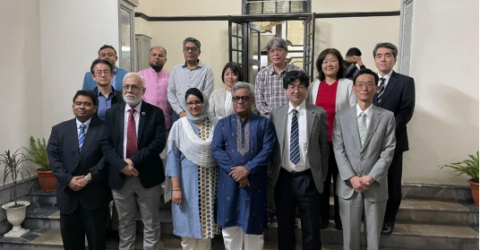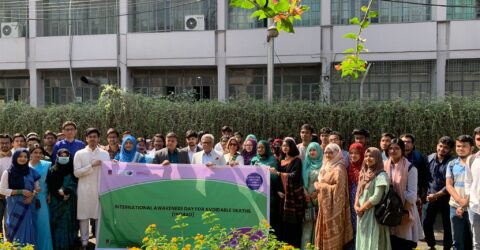
Afsar Munna
Nabina Afsana Niha who was promoted to grade six of a secondary school by submitting a bunch of assignments claimed some of her friends completed their assignments in an illegal manner. She has also ranked second in her class.
Although, in previous years the authorities used to allow students to the next class by taking annual exams, the government has made some changes last year to curb the covid-19 infections. It instructed to evaluate the merit of the students through assignment instead of taking exams. This is an emergency solution for many while many have feared that it will decline enthusiasm among students as they can copy directly from different sources or can perform their assignments by their parents or seniors.
Nabina said that most of her friends’ assignments were completed by their parents or elder siblings, she also wanted to do so but her parents were so in denial on this issue saying “it’s your task so complete it yourself we can only help”.
“That’s why I became the second girl. The guardians play a vital role in this assessment process.” “This year the authority hilariously promoted students to the next class by taking a bunch of assignments instead of exams.
Who knows in which way students completed their assignment? Maybe nobody knows the answer,” Akib Zaman, a student who was promoted to grade ten by submitting assignments, said.
Marking this as technical solution Professor Dr. Md. Abdus Salam of Institute of Education and Research (IER) at Dhaka University recommended to include something with this process.
He said, “It would be more acceptable to give homework once a month and evaluate students through it instead of evaluating through one or two assignments. There is also no opportunity to verify if the student has resorted to any dishonesty during the assignment.
“We were not prepared for a pandemic situation, so we have infrastructural limitations as well with remote learning accessories. The government has made arrangements for teaching school-children through TV and radio. But, there is no chance of getting feedback through this system which is the main problem. The government should ensure the participation of all students in the teaching process using every means of communication, recommended this professor,” he added. “Another thing can be implemented that the teachers will personally instruct the students and will take the feedback from them as homework. Later, teachers will evaluate students through these assignments, he furthered. “Obviously there is a big difference between exam taken in physical setup under the tutelage of invigilator and these processes but what else we can do.” In a recent focus group discussion with UNICEF (United Nations Children’s Fund), students representing all eight divisions in Bangladesh unanimously agreed that while remote learning is helping them remain in touch with their academic studies, it is fraught with many challenges.
Although device problems are the main problem in taking online classes, it is not the only problem in Bangladesh. Internet access, Internet speed, teacher’s inability to take online class, technical errors, lack of opportunity to get feedback and the lack of precise planning also works as regulators behind its failure.




